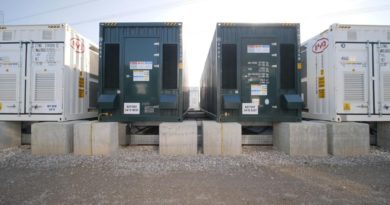Renewable energy generators and nuclear power plants could have their revenues capped under a new government plan.
The move could hit the profits of energy companies, like SSE and Scottish Power, generate from record-high wholesale power prices.
Ministers say the proposal would ensure consumers and businesses pay a fair price for energy.
But energy bosses say the plan – for which there are few details – could put off investors.
Currently in the UK, wholesale electricity prices are set by gas-fired generation.
With the price of gas rocketing in recent months, some nuclear power plants and solar and wind farms have made big profits.
This is different at newer facilities, which produce power at an agreed price.
The temporary cap, which will limit the amount generators can make, is set to be introduced in the House of Commons on Wednesday as part of the Energy Prices Bill.
In its announcement, the government gave no details of the expected price limit on revenues generated by renewable energy companies.
The government said it would launch a consultation on how the revenue cap would work before introducing the measure at the start of 2023.
At a committee hearing, Climate Minister Graham Stuart said the cap would “help pay for the cost of other schemes, to reduce customers’ energy costs”.
When asked how much money the cap scheme would raise for the government, Mr Stuart said he did not have the figures “immediately to hand”.
Jonathan Mills, the senior civil servant in charge of energy policy, said “it will be possible to assess the impacts in terms of pounds” once the details of the cap had been finalised.
Renewable energy companies say the UK government’s proposed cap on their revenues would effectively amount to a windfall tax, something Prime Minister Liz Truss has said she was opposed to.
A windfall tax on the UK oil and gas sector was introduced on 26 May, described as a 25% Energy Profits Levy, applying to companies that extract British fossil fuels.
Unlike traditional windfall taxes, the cap will not be a retrospective tax on excessive profits made by renewable energy companies.
Instead, the cap will in effect limit the amount of money these energy companies will make, but the details have not yet been revealed.






